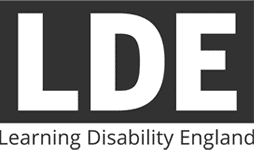Jackie Taylor – Senior Development Officer, Changing Our Lives
In The Odyssey, the character Proteus was a tricksy sea god who transformed himself into a series of different animals to avoid being captured. I recently heard groundbreaking disability advocate John O’Brien refer to institutions as protean beings that can readily assume different shapes and forms but stay the same in nature at their core. This was said in relation to the many people with a learning disability who have the misfortune to live in what are effectively mini-institutions of various forms in the community even though the large hospitals of the past closed down many years ago. As an organisation, we see this all the time: people physically present in communities but far from connected to that community and instead living very segregated lives at the mercy of services that fail to put the person’s needs at the centre of the support they provide to them. This idea of the institution as something that isn’t easily dismantled got me thinking about the ongoing scandal of the failure to significantly reduce the number of people with a learning disability and autistic people who find themselves in impatient units around their UK.
In March of this year, Mencap released data that revealed the government was four years behind its target (which is in the NHS plan) to reduce the number of people with learning disabilities and autistic people in mental health hospitals by 50 per cent by 2024. In fact, since the horror of the abuse at Winterbourne View was exposed on national TV in 2011, not a single target for reducing numbers of people with learning disabilities and autistic people in hospital has been met.
Without doubt, a key part of reducing the numbers of people in hospitals is to prevent admission in the first place. Effective prevention is multi-faceted but one change on the horizon has the potential to have a significant impact. Currently, people with a learning disability and autistic people can be sectioned under the Mental Health Act 1983 even if they don’t have a mental health condition. Too often, this means that people end up detained in a mental health hospital just because there is a lack of the right support in the community, not because they need, or would actually benefit from, inpatient mental health care.
The draft Mental Health Bill published in June 2022 contains a number of amendments to the Mental Health Act 1983, including changes to limit the scope to detain people with learning disabilities and autistic people for treatment unless they have a mental illness that justifies a longer stay or if they are admitted through the criminal justice system. Alongside this is a plan to strengthen the role of Care (education) and treatment reviews (C(E)TRs) by putting them on a statutory footing. The draft Bill was subject to pre-legislative scrutiny by a Joint Committee from July to December 2022, and a report published on 19 January 2023.
Although many have welcomed this change, there are a myriad of serious concerns. Will merely removing the option of involuntary detention for people with learning disabilities and autistic people end their inappropriate long-term detention and ensure better outcomes? Or will the reforms instead bring about unintended consequences that are even more insidious? Might many people end up being detained in hospitals under the scope of the Mental Capacity Act instead, through Deprivation of Liberty Safeguards (DoLs), with less rights for review and appeal? Could the loss of the right to aftercare that is currently available to many people who have been sectioned reduce the range of opportunities for appropriate support in the community? Might others be subjected to inappropriate use of psychotropic medication to mitigate risks and maintain them in the community? Could others end up funnelled into the criminal justice system or perhaps deliberately misdiagnosed in order to provide what is essentially the lesser of two evils? Will this be a new beast to contend with, or simply the same old devaluing of people wrapped up in shiny new legislation?
The report from the Joint Committee contains a whole range of recommendations and warns that a deficit in community care provision has the potential to derail reform of the Bill, leading to worse outcomes for people with learning disabilities and autistic people. People are locked up now because of poor support in the community which often leads to it appearing that there is nowhere else for the person to go. It seems clear to me, that focusing only on the legal routes to detention is not enough; it is the resources and services wrapped around the law that will make all the difference. Addressing the barriers to good support in communities might be more difficult and costly than changing the Law, but it is fundamental to ending the inappropriate detention of people in hospitals. The Joint Committee recommends that the national ‘action plan’ to close these hospitals – Building the Right Support – should be reviewed and strengthened, with clear milestones to deliver change.
This seems all the more necessary given the context in which it is happening. Headlines such as the one in April that the extra funding for the social care workforce is to be halved, the freezing of funding to support the discharge of autistic people and people with learning disabilities between 2021/22 and 2022/23, despite rocketing inflation and soaring costs to providers, and an average vacancy rate across the social care sector at nearly 11% which is twice the national average cannot be ignored or glossed over.
Without a real and urgent focus on improving support in the community people with a learning disability and autistic people will continue to be overmedicated, inappropriately restrained and secluded, whether in hospital or through the process of trans-institutionalisation in other locations. The creature will look different, as it always does, but in the end, the protean being will survive.





